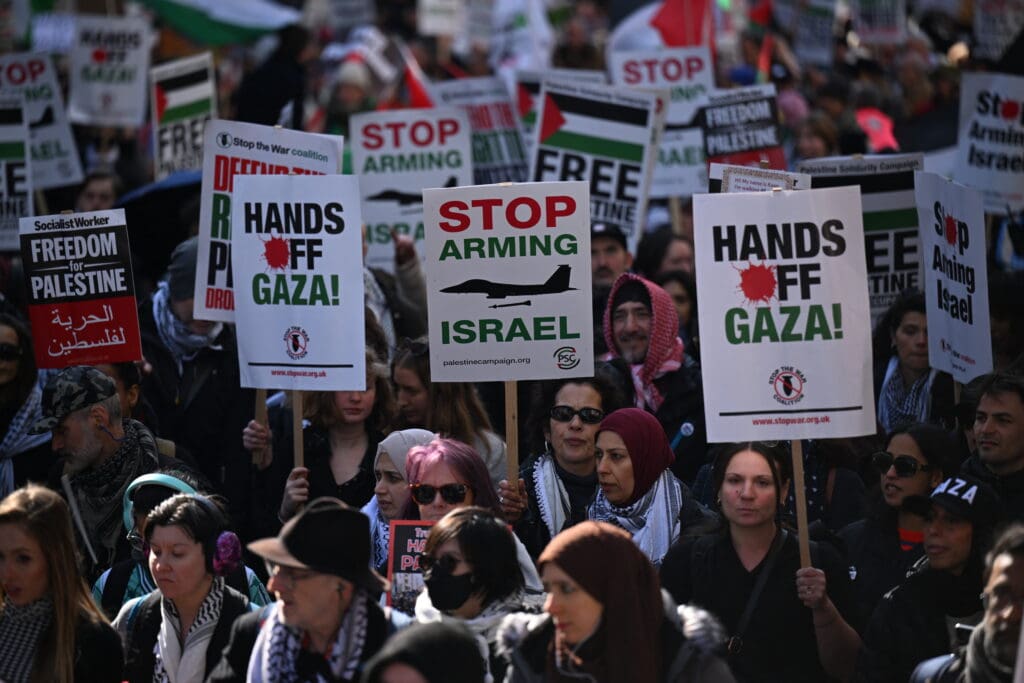Against the backdrop of the daily horrors taking place in Gaza, a wave of Western countries have decided to recognize the State of Palestine. After Ireland, Spain and Norway took the step in 2024, France and Australia have pledged to follow suit at the United Nations General Assembly in September. The United Kingdom and Canada have also expressed their intention to do so, albeit with a litany of conditions. In short, the diplomatic map is shifting. But recognition is not a policy, it is an opening. The real work begins the day after.
Two persistent misconceptions cloud the debate. One is to mistake recognition for a peace plan rather than a tool to spur further action. The other is to imagine that it can revive a two-state formula rendered inoperable by the facts on the ground Israel has established over decades of military occupation and colonization. More than 700,000 Israeli settlers now live across the West Bank, including East Jerusalem. Separation walls, settlements, checkpoints and a dense web of military orders fragment both physical space and jurisdiction. In the past year, the Israeli Knesset has voted to reject the establishment of a Palestinian state and to annex the West Bank. If diplomatic recognition is to have a meaningful role in reversing these developments, recognizing governments must align the leverage they possess with the outcome they say they support.
What does that require?
The only way to move the needle on the two-state solution is to take steps that force Israel’s government to reconsider its intransigent path toward annexation and the fulfillment of a “Greater Israel.” First, governments supporting two states must move from symbolic action to enforcing international law. Recognition should be anchored in the judgements of international courts and treaty bodies, not in open-ended “confidence-building” exercises that absorb pressure and deliver little. Governments that recognize Palestine should operationalize that commitment by barring economic support for the settlement enterprise, adopting import restrictions on settlement goods, and applying targeted measures to entities and individuals who enable annexation, settler violence and war crimes against the Palestinians. If recognition is to be followed by more than applause, it must change the incentive structure that keeps the status quo in place.
Secondly, recognizing states must pair recognition with steps that rebalance the vast asymmetry in power between Israel and Palestine, not just revive a deeply flawed peace process. For the past three decades, that process rested on the assumption that negotiations would furnish Palestinians with the bargaining power they otherwise lacked relative to Israel. In practice, the agreed framework made Palestinian rights conditional on successive rounds of talks, while imposing no costs on Israeli expansion. If recognition is to carry any substantive force, it must invert that dynamic.
Thirdly, these states need to support a credible roadmap for Palestinian governance . Many capitals are balancing their decision to recognize Palestine with demands to reform Palestinian governance institutions. However, without a clear policy, they are reaching for familiar but misguided prescriptions: empowering the Palestinian Authority; holding elections; reviving old reform packages. While reform is certainly needed, it cannot be a proxy for creating deeper dependency. A better approach would be to prioritize three elements: (1) Protect the institutional core of Palestinian representation, including, but not limited to, a reformed PLO, and the independent ecosystem of Palestinian civil society, so any transition is political rather than merely administrative; (2) support an accountable financial architecture insulated from donor micromanagement and Israeli control; (3) and back credible tracks for transitional justice, such as documentation, restitution and mechanisms addressing displacement and dispossession. These steps should affirm the rights to Palestinian freedom and self-determination, including the right to choose and renew their political representation, as all free peoples do.
Finally, these states need to be clear and candid about what achieving a Palestinian state means in practice. The current basis for diplomacy is that recognition will somehow “revive” the two-state solution without saying plainly what it entails. This could include reversing settlement expansion and Israeli annexation of East Jerusalem, creating a contiguous Palestinian territory, and establishing enforceable timelines for achieving outcomes. If these conditions cannot be met, the international community should abandon the empty rhetoric in support of two states, which only serves to provide cover for the existing colonial reality. Although a single, democratic state grounded in equal rights is not most capitals’ preference, it is the logical and moral alternative if equality rather than ethnoreligious privilege and apartheid is the organizing principle. Either way, clarity is better than evasion.
These steps do not require a reinvention of diplomacy. Governments need only do in Palestine what they claim to do elsewhere: defend the rights of vulnerable people; enforce protections from collective punishment and genocide; protect Palestinian society and its economy from settler-colonial predation; and refuse to bankroll a transnational system of oppression.
The UK, Canada and, increasingly, Australia are hedging their recognition of Palestine to demands for Palestinian Authority reform and elastic security benchmarks. But hedging is politics, not a plan. The quickest way to empty recognition of meaning is to announce it while leaving the fundamental obstacles to realizing a Palestinian state untouched. Recognition that does not change the behaviors of the occupier, the settlers, or Western supporters of Israel is an epitaph, not a breakthrough. It preserves the status quo, which, despite the name, shifts daily in a negative direction.
Given the trajectory of Western policy over the past three decades, it is reasonable to view recognition as a hollow gesture designed to deflect mounting pressure to halt the bloodshed and starvation in Gaza. Little thought is being given to the day after recognition. Put plainly, if state recognition of Palestine is followed by inaction, it is less a genuine diplomatic effort than a certificate of acquiescence to prevailing realities. At best, it registers formal objection to Israeli conduct. At worst, it becomes empty rhetoric that bears complicity in Israel’s immoral and illegal agenda.


